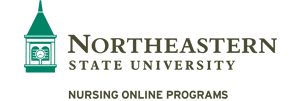Patients are living longer but they also can have more chronic medical conditions. And, a large portion of the nursing workforce is retiring, leaving vacancies to be filled by less experienced nurses. Because the delivery of care is more complicated today than it was in the past, the Bachelor of Science in Nursing (BSN) is becoming the preferred minimal level of preparation.
If you are a registered nurse (RN) with a nursing diploma, Associate Degree in Nursing (ADN) or an Associate of Applied Science in Nursing (AAS), you might wonder what kind of preparation you will acquire in an RN to BSN program.
What Can You Expect to Learn in an RN to BSN Program?
While your prior general coursework should be accepted, it depends on the RN to BSN program you choose. You might be required to complete some corequisites along with the nursing curricula.
A BSN program covers aspects of nursing that an associate program might not, including leadership, research, cultural awareness, public health and administration. Northeastern State University’s online RN to BSN program includes these nine nursing courses:
- Professional Nursing Role
- Health Assessment
- Cultural Competency in Nursing
- Family Health Nursing
- Current Trends and Issues in Nursing
- Fundamentals of Nursing Research
- Community Health Nursing
- Nursing Leadership and Management
- Professional Nursing Synthesis
What Is an RN to BSN Program?
The RN to BSN program expands on the previous preparation and experience of nurses with nursing diplomas and associate degrees.
The American Association of Colleges of Nursing (AACN) purports that RN to BSN programs prepare students for a broader scope of practice by focusing on the following three factors:
- Strengthening clinical reasoning and analytical skills so nurses can provide quality patient care.
- Promoting professional development so nurses comprehend the importance of maintaining their competencies and staying up to date on new trends in healthcare.
- Understanding how different cultural, political, racial, religious and socioeconomic backgrounds affect the delivery of patient care.
Who Is Eligible for RN to BSN Programs?
RN to BSN programs are designed for nurses who have a nursing diploma, ADN or AAS. You do not qualify for an RN to BSN program if you have an associate degree in another field of study. Other requirements for eligibility include:
- Holding a diploma or associate degree from an accredited institution
- Passing the National Council Licensure Exam (NCLEX) to become an RN
- Possessing a current RN license
- Undergoing a criminal background check
- Meeting the school’s admission criteria
Why Should You Earn a BSN?
A BSN prepares nurses for the challenges they can encounter in the demanding and ever-evolving healthcare system.
Besides the professional value of a BSN, there are other personal benefits. With a BSN, you have more job options available to you and the ability to earn a higher salary. You also are prepared to continue on to a graduate program.
Is an Online RN to BSN Program for Everyone?
An online RN to BSN program is intended for the working nurse. Online programs fit into a nurse’s busy life by offering multiple start dates and the flexibility to study at his or her own pace. However, it is critical that students adhere to deadlines and willingly communicate with faculty to successfully complete an online program.
You no longer have to attend classes on a campus; instead, you can complete courses during the day or at night from any location. The NSU online RN to BSN program consists of 30 credit hours, which students can complete in as few as 10 months.
With a BSN, you are more likely to move ahead in your career, earn a higher salary and stay competitive in the job market. A BSN prepares you to provide optimal care to a diverse patient population in all types of healthcare settings.
Learn more about NSU’s online RN to BSN program.
Sources:
U.S. News & World Report: How to Choose an Online Nursing Bachelor’s Program
Nursing.org: Online RN to BSN Programs


